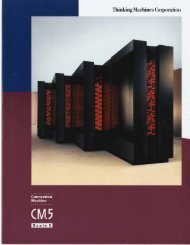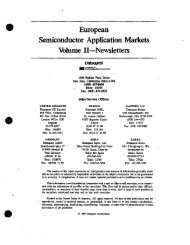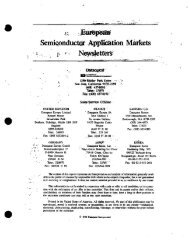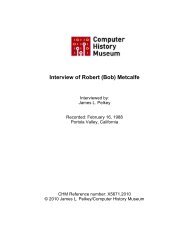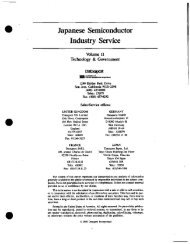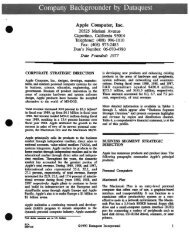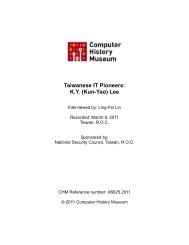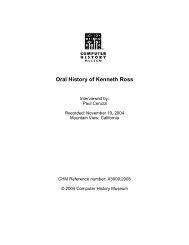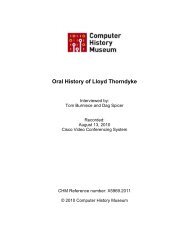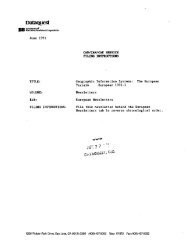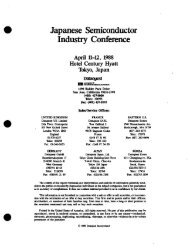Oral History of Robert Everett - Computer History Museum
Oral History of Robert Everett - Computer History Museum
Oral History of Robert Everett - Computer History Museum
You also want an ePaper? Increase the reach of your titles
YUMPU automatically turns print PDFs into web optimized ePapers that Google loves.
<strong>Oral</strong> <strong>History</strong> <strong>of</strong> <strong>Robert</strong> <strong>Everett</strong><br />
<strong>Everett</strong>: For the whole technical organization. After a couple <strong>of</strong> years, I became vice-president for<br />
Technical Operations, and then a few years later I became executive vice-president, and then president.<br />
Hendrie: And then you became responsible for the business?<br />
<strong>Everett</strong>: Yes. I felt pretty responsible before because the technical organization was most <strong>of</strong> it. As an<br />
FFRDC and a non-pr<strong>of</strong>it and so on, the emphasis is on the technology and the job you do for the<br />
customer. And the finances and things like that in marketing and whatnot are a different matter.<br />
Hendrie: And much more modest than in a conventional business.<br />
<strong>Everett</strong>: Yes. I don't know how MITRE would do if it had to compete in an industrial world. I think it would<br />
depend on how rapidly we could build the skills that are necessary to live in that world before technical<br />
people ran out <strong>of</strong> work and collapsed.<br />
Hendrie: I don't believe, I actually don't know whether they are non-pr<strong>of</strong>its but other primarily technical<br />
organizations that have tried to foray into the commercial world, such as BB&N [Bolt Beranek & Newman]<br />
that have found it very difficult.<br />
<strong>Everett</strong>: Another thing that I think would make it very difficult, if that happened and you sat down and<br />
said, well, it isn't that I have a company that hasn’t got all the things that it needs. It's that I own this<br />
tremendous technical organization. And MITRE is like a huge multi-billion dollar organization. It's like the<br />
engineering arm <strong>of</strong> this organization. It just doesn't have all the production and the marketing and all that<br />
jazz, service. If you're going to make any money, you don't make it out <strong>of</strong> an engineering organization you<br />
make it out <strong>of</strong> production. So the thing to do would be undoubtedly to combine with somebody that had<br />
the production capability in a worldwide service organization and so on. Then provide them with a strong,<br />
coherent, know-how-to-work-together technical organization. That would give them a better chance, I'd<br />
think.<br />
Hendrie: And make some great products.<br />
<strong>Everett</strong>: Yes.<br />
Hendrie: Because you make more money repeatedly selling the intellectual…the fruits <strong>of</strong> your intellectual<br />
endeavor rather than just selling it once and going on and doing another thing. <br />
<strong>Everett</strong>: People make a good living by giving advice, but companies don't. Individuals do. <br />
Hendrie: There are a couple <strong>of</strong> other things that I wanted to touch on. I read somewhere that you, in your<br />
CHM Ref: X3877.2007 © 2007 <strong>Computer</strong> <strong>History</strong> <strong>Museum</strong> Page 52 <strong>of</strong> 56



